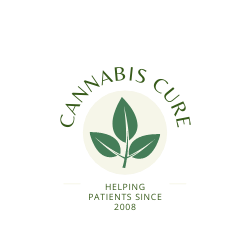Introduction
In this article, we look at the famous psychoactive compound in cannabis and its anti-cancer potential.
We would strongly recommend watching the below YouTube Video by Dr. Jeffrey Chen from UCLA in America (the video is approx 35 minutes long but is extremely insightful).
What Is THC?
Tetrahydrocannabinol (THC) is the main active component of medical cannabis and although it is known for its psychoactive properties, which tend to make us feel high and hungry, it also has prominent therapeutic benefits.
Humans and other mammals contain an endocannabinoid system within their bodies, comprised of endocannabinoids, receptors, and enzymes, and this system is responsible for maintaining homeostasis by regulating a variety of functions including sleep, digestion, pain, memory, fertility, inflammation, mood and cognition.
When our endocannabinoid system becomes unbalanced, we experience health problems like stress, insomnia, illness, and disease, including cancer. Ingesting medical cannabis allows the plant’s cannabinoids to mimic the natural compounds in our body and bind to the two major cannabinoid receptors: CB1 and CB2, helping the body function properly again.
THC can bind to both these receptors and has an extremely high binding affinity to the CB1 receptors in the brain, connective tissues, and central nervous system, so THC helps cancer, pain, inflammation, depression, and much more.
How Does THC Kill Cancer Cells?
THC connects to the CB1 or CB2 cannabinoid receptor site on the cancer cell and can induce cell apoptosis – a natural process in the body where the cells are destroyed – while leaving the surrounding healthy cells alone. THC does this by causing an increase in ceramide synthesis, which leads to cell death. A healthy cell does not produce ceramide in the presence of THC so it is not affected.
One of the first studies describing THC’s antineoplastic activity – the prevention or inhibition of a tumour – was published in 1975 and examined the effects of THC on tumour growth. Mice with lung cancer were given oral THC and after ten days demonstrated a dose-dependent remission of the tumour growth.
A more recent study shows that THC is particularly effective for neurodegenerative diseases too. The research was published in Nature Partner Journals-Aging and Mechanisms of Disease and explored the use of THC on neurons implanted with amyloid-beta, a toxic protein associated with Alzheimer’s disease that can lead to plaque in the brain’s nerve cells, which eventually leads to cell death. When THC was applied to the inflamed cells, amyloid-beta was suppressed, preventing the death of the brain cells.
THC Cancer Treatments
The best-known THC cancer treatment is the Rick Simpson Oil (RSO), the most concentrated cannabis oil a person can consume. It requires ingesting 60 grams of RSO over 90 days and contains an extremely high percentage of THC at around 60 to 90 percent.
Along with THC and CBD, RSO also contains healthy fatty acids, terpenes, and the minor cannabinoids that work in symbiosis as a potent medicine. This theory that combinations of cannabinoids working in unison have a greater effect than the sum of their individual cannabinoids is known as the Entourage Effect.
Rick Simpson is an engineer from Canada and created this medical cannabis protocol after healing three unusual bumps on his nose, cheek, and chest, which were later diagnosed as basal cell carcinoma, a non-melanoma form of skin cancer.
Because the protocol involves consuming 60 grams of RSO over 90 days, it is best to increase the dose gradually to avoid adverse effects. It usually takes the average person about 90 days to ingest the full 60-gram treatment. To learn more about the Rick Simpson Protocol: RSO 90 Day Cancer Dosing Protocol
How Else Does THC Help With Cancer?
Conventional cancer treatments can cause many side effects, including a loss of appetite, nausea, sleep disturbances, and pain, which can all be eased with THC.
Medical cannabis is known for its antiemetic properties – meaning it is effective in helping with vomiting and nausea – because THC affects the receptors that normally induce vomiting.
Cannabinoids have also been studied for their pain-relieving potential in cancer-associated pain and THC helps increase beta-endorphins, which relieve pain in a similar way to opioids.
Finally, THC is also behind the famous munchies, which is useful for those who are suffering from a loss of appetite because THC triggers appetite whether you are hungry or not.
Further Reading
How and where to safely buy RSO medical cannabis oil online
Help and Advice
If you need advice or help with Medical Cannabis, please use the contact form.
We try to answer all emails within 24 hours and are happy to help and provide advice on all aspects of Medical Cannabis treatments in complete confidence.
Disclaimer: Please note that whilst we consider ourselves subject matter experts regarding Medical Cannabis, we are not medically trained professionals. We are an information resource and there is still limited evidence that Medical Cannabis can cure all the illnesses we discuss here. We recommend you do as much research as possible, and where practical seek professional medical advice before proceeding with Medical Cannabis oil. In short, always do your homework.

